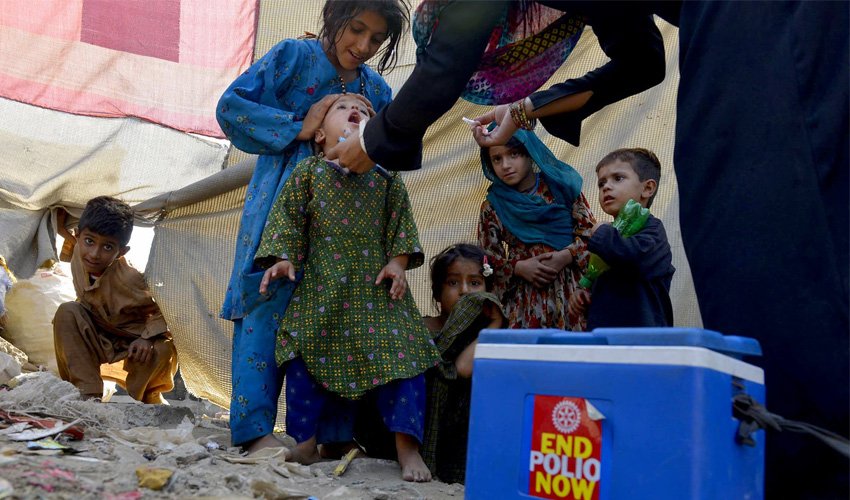: Pakistan has reported 59 polio cases nationwide this year, with 19 resulting in mild disabilities and 10 in severe disabilities, sparking renewed concerns over the resurgence of the virus. This alarming development was discussed during a Senate Standing Committee on Health meeting, chaired by Senator Aamir Waliuddin Chishti, on Thursday. The session focused on the status of polio eradication efforts across the country.
The committee was informed that Pakistan had remained polio-free for 14 months between 2021 and 2022, but the virus has since re-emerged, particularly in regions such as Quetta, Peshawar, and Karachi. Anwarul Haq, Chief of the Polio Emergency Operation Center, highlighted the challenges in these areas, where large populations remain vulnerable to the virus.
Dr. Mukhtar Bharath, Health Coordinator, delivered a detailed presentation on the role of the National Health Institute in combating polio. “Our institution is actively working on the detection, diagnosis, and laboratory needs of polio cases, especially as the virus continues to challenge public health,” he said. Dr. Bharath noted that while Karachi and Balochistan have shown some improvement, southern Khyber Pakhtunkhwa remains a significant challenge due to security concerns that hinder immunization efforts.
Dr. Humayun Mohmand also addressed the global stigma surrounding polio, emphasizing the urgency of eradicating the virus. “It is a source of shame for us that while many countries have successfully eradicated polio, Pakistan and Afghanistan are still struggling with it,” he said.
Senator Chishti praised the government’s efforts, particularly in Sindh, and acknowledged the support of international organizations such as the Bill & Melinda Gates Foundation and Rotary International. However, he stressed that more work is needed to eliminate the virus completely. The committee also discussed the role of travel during peak periods, such as Eid, in spreading the virus across regions. “Increased vigilance during these times is crucial,” Dr. Bharath stated.
Despite the challenges, the committee expressed optimism about the future of the polio eradication program. Dr. Bharath shared that the virus spread is expected to decline by February 2025 due to enhanced immunization strategies and government-led initiatives. “Significant improvements are anticipated under the current efforts,” he said.
The committee also paid tribute to the sacrifices of polio workers, with 88 workers having lost their lives in the line of duty. Dr. Bharath expressed gratitude for their contributions and noted that the Prime Minister has personally reached out to their families to offer support.
In addition to polio eradication, the committee addressed other health-related issues. The absence of the President of the Pakistan Nursing Council for the second consecutive meeting drew severe criticism, with Senator Chishti issuing a final warning and threatening disciplinary action. The committee also deferred deliberations on the “National Institute of Health (Re-organization) Amendment Bill, 2024,” introduced by Senator Saleem Mandviwalla, for two weeks.
The extension of the Bachelor of Dentistry Surgery (BDS) program from four to five years was another contentious topic. The committee took stern notice of the decision, which was reportedly made without consulting stakeholders, and decided to deliberate on the matter in the next meeting.
In closing, Senator Chishti reaffirmed the Senate’s commitment to eradicating polio from Pakistan. “The path forward includes enhanced immunization, public awareness, and continued cooperation with international partners. We will continue working towards a polio-free Pakistan,” he said.
The committee plans to hold a follow-up briefing in three months to monitor progress on polio eradication efforts.










